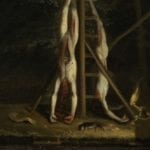 History
History  History
History  Health
Health 10 Everyday Activities That Secretly Alter Consciousness
 History
History Top 10 Historical Disasters Caused by Someone Calling in Sick
 Animals
Animals 10 New Shark Secrets That Recently Dropped
 Movies and TV
Movies and TV 10 Forgotten Realities of Early Live Television Broadcasts
 Technology
Technology 10 Stopgap Technologies That Became Industry Standards
 Weird Stuff
Weird Stuff 10 Wild Facts About Taxidermy That You Probably Didn’t Know
 Travel
Travel 10 Beautiful Travel Destinations (That Will Kill You)
 Miscellaneous
Miscellaneous 10 Modern Marriage Rituals Born from Corporate Branding
 Weird Stuff
Weird Stuff Ten Bizarre Visions of 2026 from Fiction
 History
History 10 “Modern” Problems with Surprising Historical Analogs
 Health
Health 10 Everyday Activities That Secretly Alter Consciousness
 History
History Top 10 Historical Disasters Caused by Someone Calling in Sick
Who's Behind Listverse?

Jamie Frater
Head Editor
Jamie founded Listverse due to an insatiable desire to share fascinating, obscure, and bizarre facts. He has been a guest speaker on numerous national radio and television stations and is a five time published author.
More About Us Animals
Animals 10 New Shark Secrets That Recently Dropped
 Movies and TV
Movies and TV 10 Forgotten Realities of Early Live Television Broadcasts
 Technology
Technology 10 Stopgap Technologies That Became Industry Standards
 Weird Stuff
Weird Stuff 10 Wild Facts About Taxidermy That You Probably Didn’t Know
 Travel
Travel 10 Beautiful Travel Destinations (That Will Kill You)
 Miscellaneous
Miscellaneous 10 Modern Marriage Rituals Born from Corporate Branding
 Weird Stuff
Weird Stuff Ten Bizarre Visions of 2026 from Fiction
10 Facts About The Real Christopher Robin Behind Winnie-The-Pooh
Before Disney and Winnie-the-Pooh, there was a real Christopher Robin: a young boy with a teddy bear. He was author A.A. Milne’s son, and he and his stuffed bear “Winnie” would inspire one of the greatest children’s characters ever conceived.
It sounds idyllic—a father turning his son into a character beloved by children around the world—but becoming a celebrity when he was just six years old wrecked Christopher Robin Milne’s life. The true story of the real Christopher Robin wasn’t a story of a whimsy, magic, and the joys of childhood. It was a dark, strange story, full of moments that’ll never show up in any Disney movie.
10 His Parents Dressed Him Up As A Girl
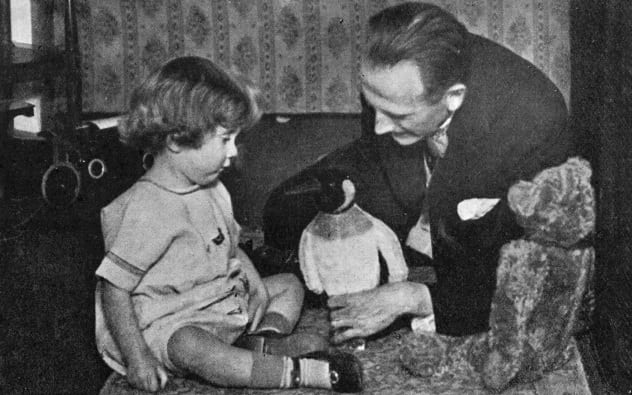
The Milnes wanted a girl. They were going to name her Rosemary, and right up until August 21, 1920, the day Christopher Robin was born, they were sure they were they were going to get a girl. When Christopher was born a boy, they barely even tried to hide their disappointment.
“We did rather want a Rosemary,” A.A. Milne wrote to a friend just a few days after his son’s birth, ”but I expect we shall be just as happy with this gentleman.”[1]
It didn’t stop them from raising Christopher every bit as much as a girl as they would have if they’d gotten the daughter named Rosemary they’d been dreaming of. They grew his hair long, with his mother styling it after the look she’d had when she was a little girl, and dressed him up in girlish frocks and gingham dresses.
They nearly replaced him with a little girl in the neighborhood named Anne Darlington. They were still so eager for a little girl that they tried to treat little Anne as their own daughter or, as they often thought, as the “Rosemary that Christopher wasn’t.”
9 He Was All But Completely Ignored By His Father
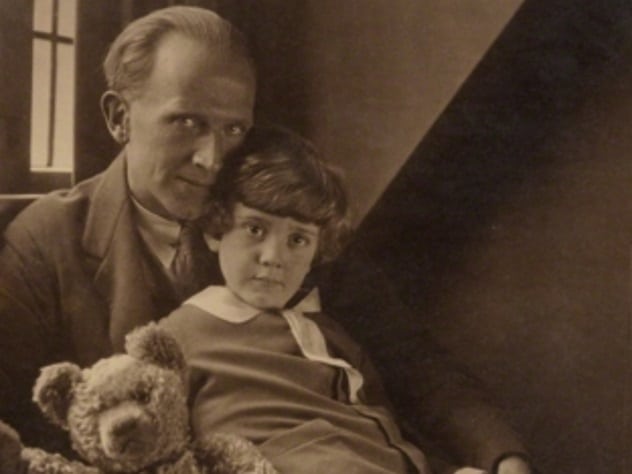
A.A. Milne might seem like the perfect father, but when his pen wasn’t pressed to paper, he didn’t have the gift with children you’re imagine.
“I am not inordinately fond of [children],” he once told an interviewer. He felt no more sentimental toward them, he said, “than one becomes for a moment over a puppy or a kitten.”
For the early years of his life, Christopher Robin’s father rarely made an appearance. Most of Christopher’s childhood memories of his father are of him working or being in another city altogether, rather than of him playing with his boy like he described in his stories.
Instead, Christopher Robin was almost exclusively raised by the live-in nanny his parents had hired, Olive Rand. He thought of her as more of a parent than his actual parents. For the first eight years of his life, he and his nanny were never apart for more than a few hours.
“Some people are good with children. Others are not,” he said.[2] “It is a gift. You either have it or you don’t. My father didn’t.”
8 His Father Based ‘Christopher Robin’ On What Other People Told Him
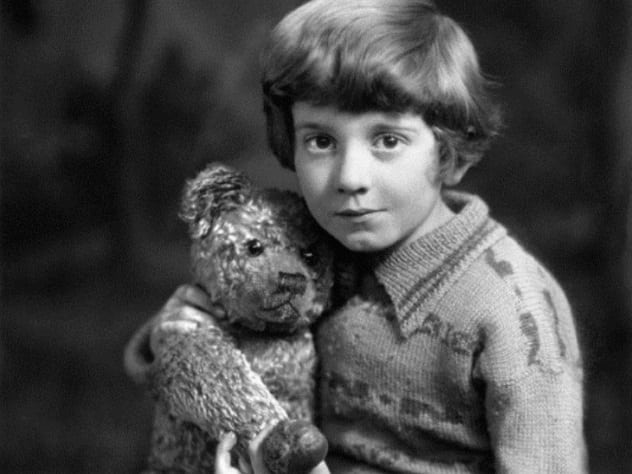
The spark of the stories, according to Christopher Robin, didn’t come from any special bonding moment between a father and a son. A.A. Milne got the idea for Winnie-the-Pooh from talking to his wife.
“It was my mother who used to come and play in the nursery with me and tell him about the things I thought and did,” Christopher Robin would later say. “It was she who provided most of the material for my father’s books.”
His mother would tell his father fanciful stories about how he’d played with his bear, and the stories burst a fantasy into the author’s mind. For a writer like A.A. Milne, it was easier to dream about children than it was to be around them, and he threw himself into the dream with a fervor he never showed his real, living son.
The Christopher Robin in the Winnie-the-Pooh books, according to the real one, was a “dream son” his father made up.[3] Milne was too uncomfortable around children to raise his own boy, and so he created an imaginary one to take his place.
7 His Parents Made Him The Face Of A Publicity Campaign At Age Seven
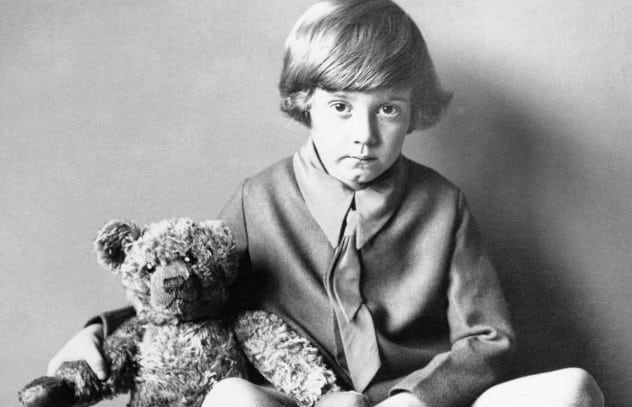
Winnie-the-Pooh was an instant success. By the time Christopher Robin had turned seven, a book starring him as the hero was in the hands of nearly every child in the English-speaking word. A.A. Milne was a sensation—but nowhere near as popular as his son.
Milne noticed almost immediately that the swarms of fans who came out to see him were nowhere near as interested in him as they were in his son. During a tour of the United States, he wrote to a friend: “It was Christopher Robin, not I, who the Americans were clamouring to see.”
Seven-year-old Christopher Robin became the center of the book’s publicity campaign. He posed for photographs with his father and with his teddy bear, he acted in a pageant based on the story, he sang one of Pooh’s songs for a crowd of 350 people, and he even recorded an audiobook version of the novel.[4]
At the time, he found the experience enthralling—but as he got older, he and his father both started to get more and more uncomfortable with what had happened. A fictional version of the boy had become infinitely more well-known than the boy himself, and it was starting to affect him.
By the time Christopher was nine, his father canceled the appearances himself. “Christopher Robin has already had more publicity than I want for him,” he told his publisher. “I do not want C.R. Milne to ever wish that his name were Charles Robert.”
6 His Fame Got Him Bullied And Beaten Up
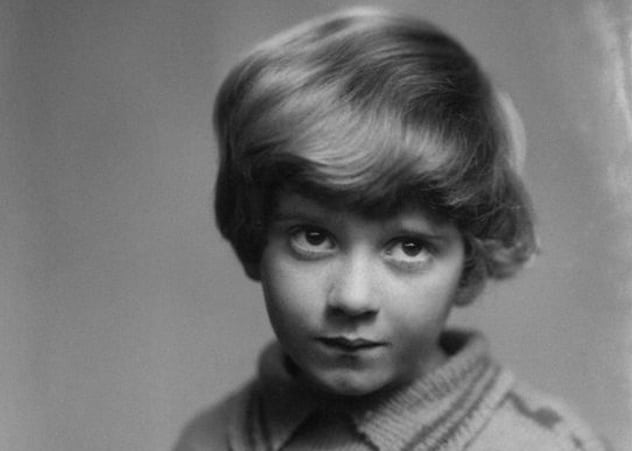
Christopher Robin quickly found himself wishing his name were anything but. When he was nine years old, he enrolled in a boarding school and, for the first time, learned just how difficult being famous was going to be.
He was bullied and beaten by his classmates almost the second he entered the school, partly for his girlish mannerisms and clothes and partly for the character that preceded him. Boys at school would taunt him, yelling, “Where’s your teddy bear?”
One boy got his hands on the audiobook Christopher Robin had recorded and played it on the gramophone every time he came near, snickering all the way through.[5] When Christopher finally managed to get his hands on it, he smashed the record to pieces.
His classmates’ favorite taunt was to chant the refrain from his father’s poem “Vespers”: “Hush! Hush! Whisper who dares! Christopher Robin is saying his prayers!”
They were almost certainly jealous of his fame, but the nine-year-old boy couldn’t understand that. It left him with what he described as “toe-curling, fist-clenching, lip-biting embarrassment.” Perhaps it’s part of the reason that, later in life, he described himself as a “dedicated atheist.”
The children hit him with more than just words, though. The young boy was hit so often that when he was 13, the once girlish and shy little boy started taking boxing lessons to defend himself.
5 He Grew To Hate His Father For Exploiting His Childhood
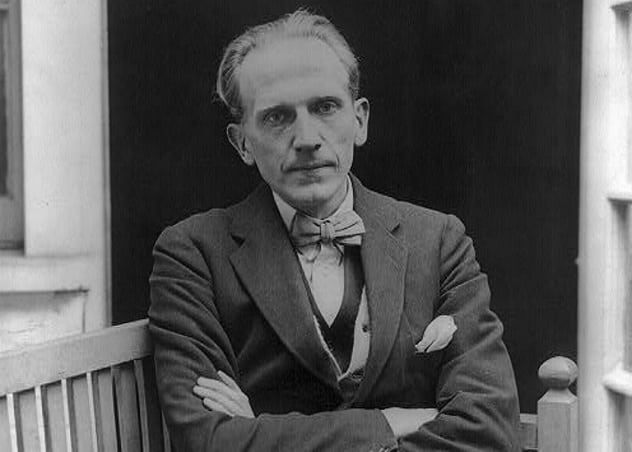
The pressure of being Christopher Robin only got worse. The books never lost the slightest hint of their fame. Christopher Robin was a boy from whom the whole world expected great things—but as an adult, by the 1950s, he’d risen up to nothing more than a job selling lampshades.
“I hadn’t been trained for anything,” Christopher Robin explained.[6] “My name was famous all over the world but it made me miserable to be pointed out as the son of my father.”
Christopher felt that his father had exploited him. “It seemed to me, almost, that my father had got to where he was by climbing upon my infant shoulders,” he complained, “that he had filched from me my good name and had left me with nothing but the empty fame of being his son.”
It was a great deal to live up to. Even up to Christopher’s final days, strangers would send their kids over to shake hands with the real Christopher Robin—and, during his twenties, they’d find the hero of a magical fantasy struggling to make ends meet by hawking discount home decor.
4 He Married His First Cousin
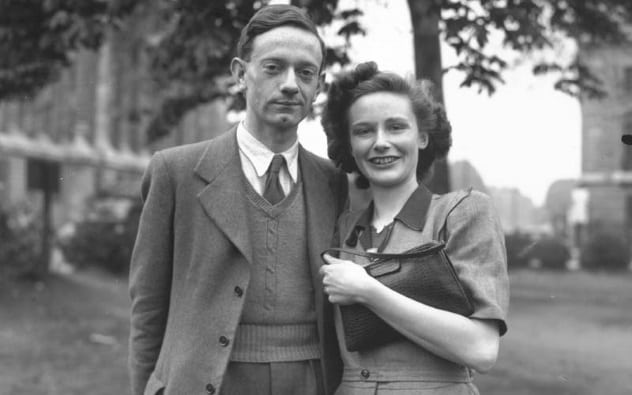
Christopher Robin’s parents dreamed he’d marry Anne Darlington, the little girl they’d treated like the daughter they’d always wanted when he was young. Frankly, though, they’d have been happy with Christopher marrying almost anyone other than the woman he did—because Lesley de Selincourt was his first cousin.[7]
Lesley was the daughter of his mother’s brother, and neither of his parents were thrilled about their union. His father was deeply troubled by the idea of his son marrying a blood relative, but his mother’s fury ran even deeper. Lesley was a side of the family she hated. She and her brother hadn’t spoken in 30 years.
Christopher and Lesley bonded, though, over a passion Christopher held more dearly than any other: a mutual hatred for Winnie-the-Pooh. Lesley was one of the few not to be impressed by Christopher’s name and to be even less impressed by his father’s work.
The pair cut all ties with Christopher’s parents and moved as far away from them as they could. As Christopher Robin would later recall, “I wanted to escape from his fame and from ‘Christopher Robin.’ ”
3 His Daughter Was Born With Cerebral Palsy
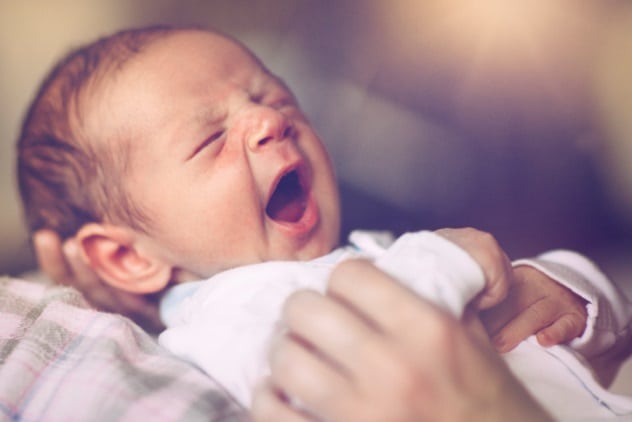
For A.A. Milne, the most troubling thing about his son’s choice in wife was what would become of their children. Any grandchildren they gave him would be the product of incest. He was terrified they would be born deformed.[8]
He wasn’t far off. Christopher and Lesley’s only child, a girl named Clare, was born with severe cerebral palsy and a whole slew of other conditions. The girl couldn’t walk on her own. She needed 24-hour care to get by.
It forced Christopher Robin to compromise his moral stance. Until the birth of his daughter, he’d refused to take a penny from his father’s success. Now, though, there was no choice. There was no way he could ever afford to take care of her on his own. To support his daughter, Christopher Robin finally started accepting royalty checks for the story that bore his name.
2 His Mother Refused To Look At Him, Even On Her Deathbed
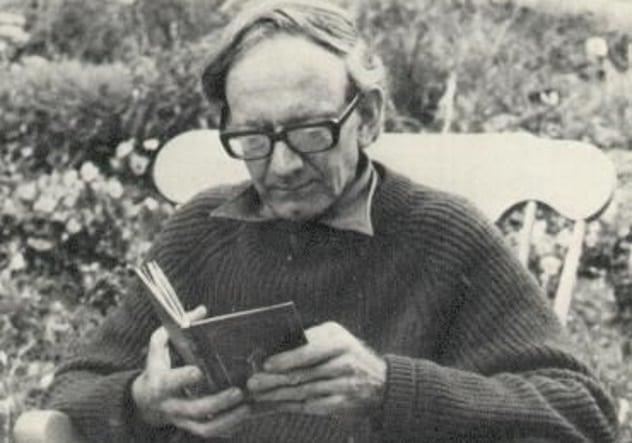
When he was still a boy, Christopher Robin once cursed his father, saying, “One day I will write verses about him and see how he likes it.”
He made good on his promise. First, he gave an interview in which he scathed his parents in front of the world, describing them as cold, detached, and nearly completely absent figures in his life. Then he published a series of memoirs, every one of them characterizing his parents as living monsters.
His mother was so upset that she had the staff at her home dig a hole and bury a sculpture of her son under the ground so that she would never have to look at his face again.[9]
His father was more forgiving, but even he rarely spoke to his son in the adult years of his life. And when he died, Christopher Robin’s mother cut off all contact altogether. She lived for 15 years after A.A. Milne’s death and, throughout it, only agreed to see her son once.
When he found out his mother was on her deathbed, Christopher Robin tried desperately to get back in touch. He begged for the chance to see his mother one last time before she left the world. She refused. Even while she was dying, she wouldn’t let her son anywhere near her.
1 He Gave Away Winnie-The-Pooh
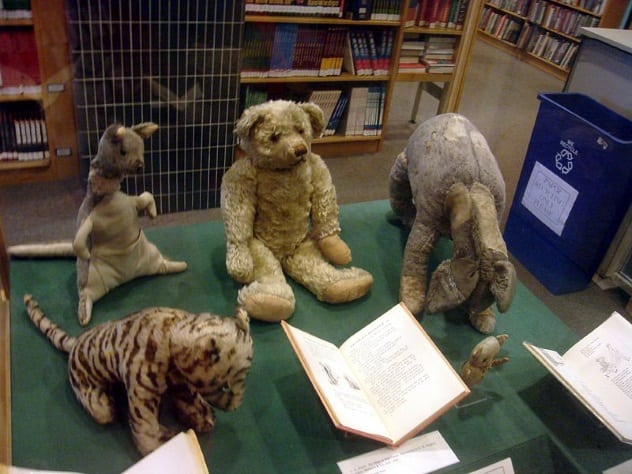
After leaving his parents’ home, Christopher Robin never held the stuffed bear that inspired Winnie-the-Pooh again. He left it with his father, who, when Christopher Robin grew up and got married, gave it to his publisher, E.P. Dutton.
Forty years later, Dutton gave Christopher the chance to take his old bear back—but Christopher Robin refused. He encouraged Dutton to donate the bear to the New York Public Library, writing the bear off with the words: “I like to have around me the things I like today, not the things I once liked many years ago.”[10]
For the millions of fans of his father’s books, it seemed a tragedy. He was the real Christopher Robin, and he was saying that he wanted nothing to do with the real Winnie-the-Pooh.
To Christopher Robin, though, these people were just swept up in a fantasy of who he was. The bear was nothing more than a childhood toy. He told them: “My toys were and are to me no more than yours were and are to you. I do not love them more because they are known to children in Australia or Japan.”
“Fame,” said Christopher Robin, “has nothing to do with love.”
Read about more real-life inspirations for fictional characters on Top 10 People Who Inspired Iconic Fictional Characters and 10 Fictional Characters Based On Real People.








